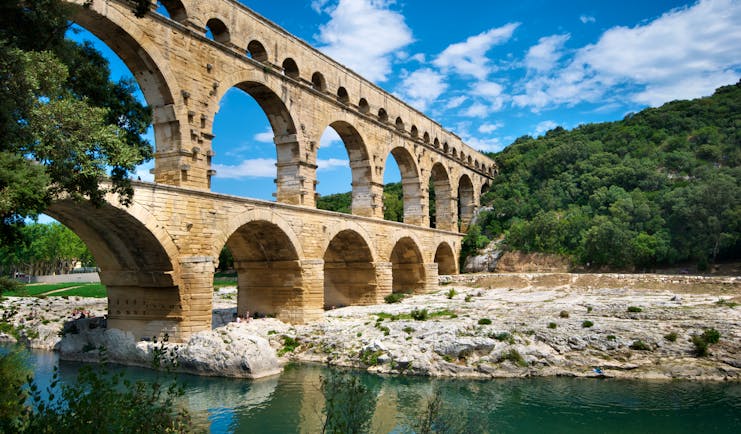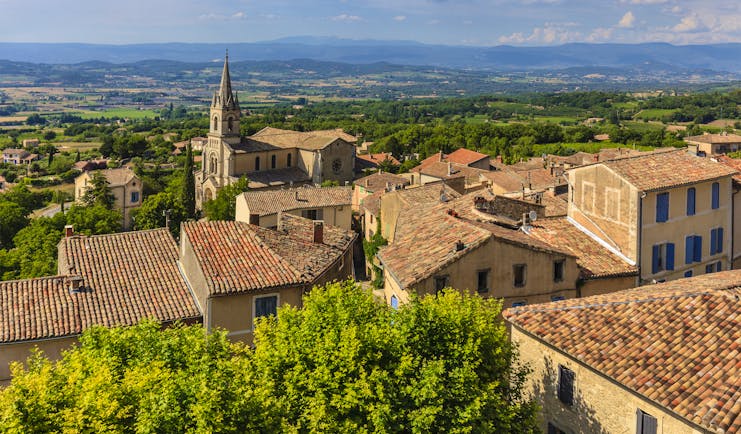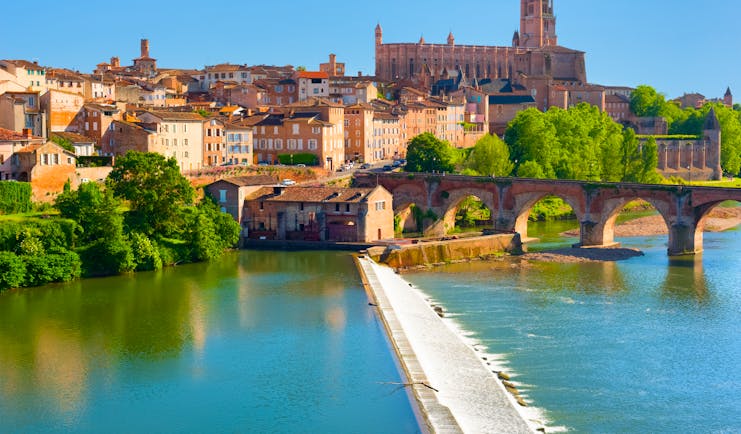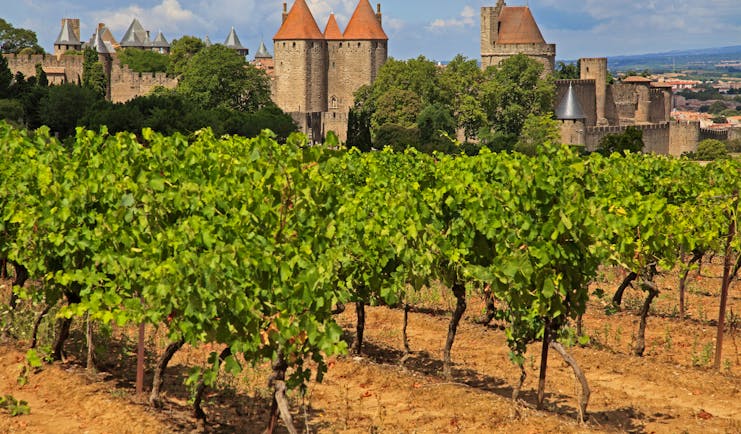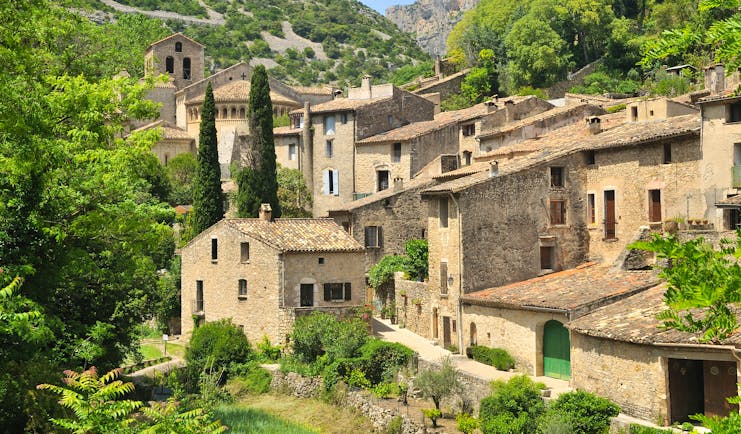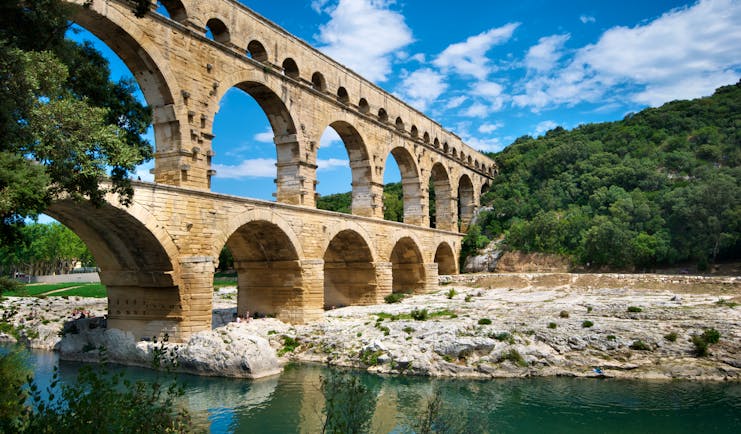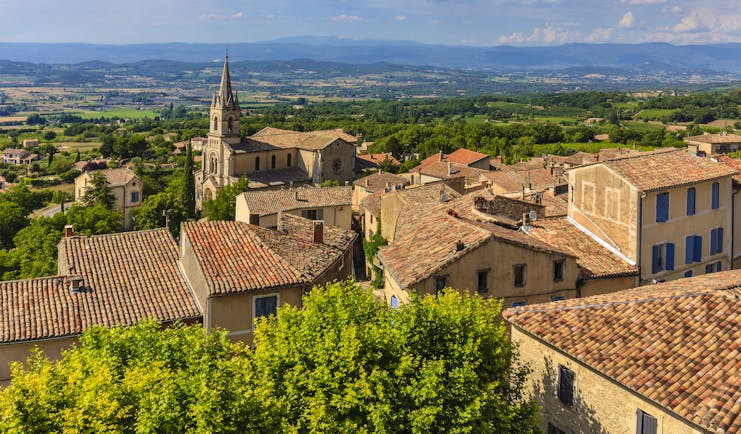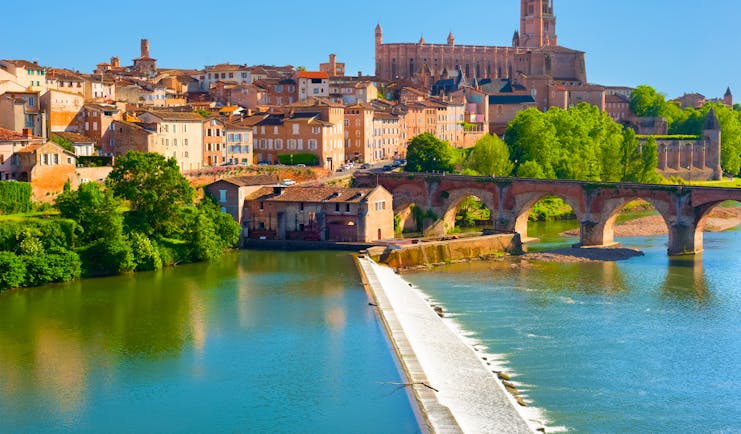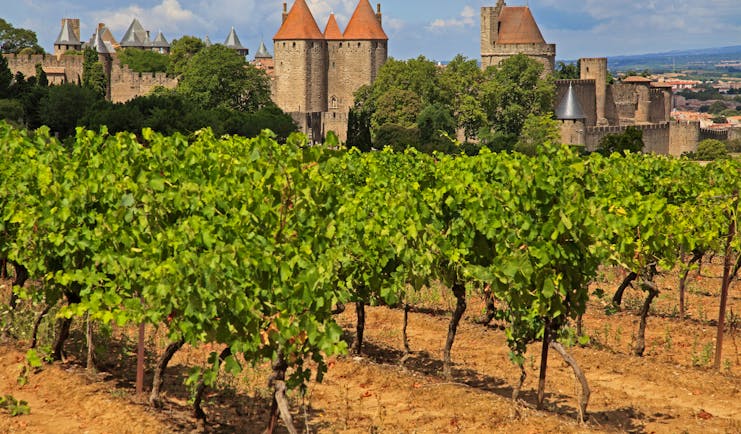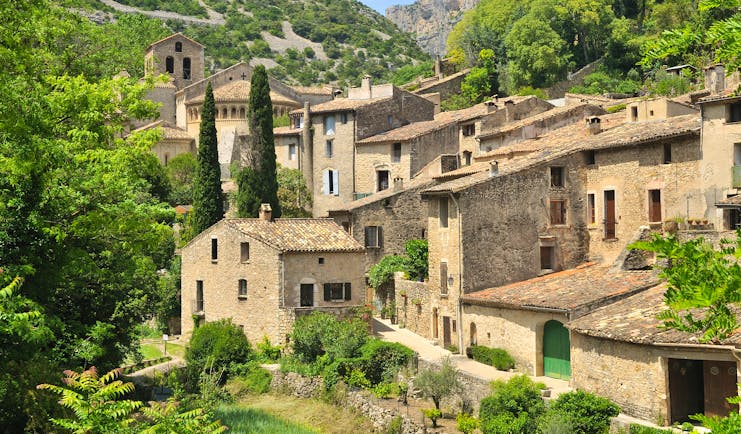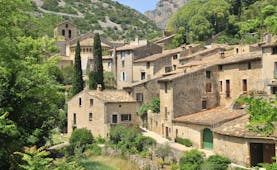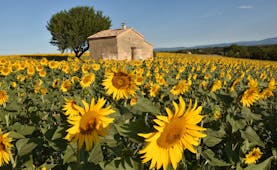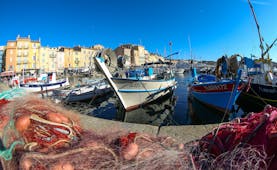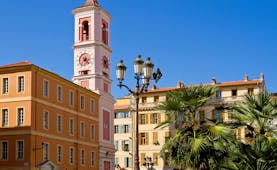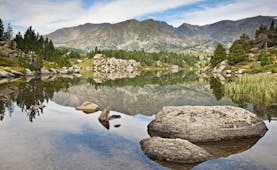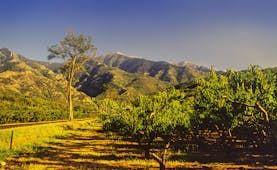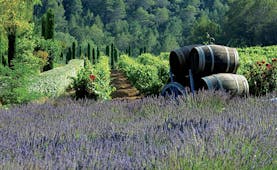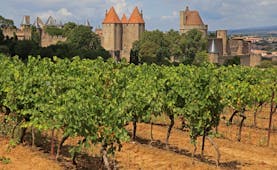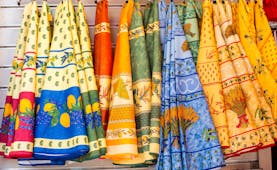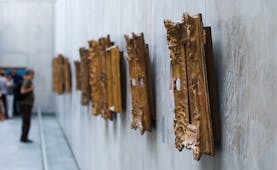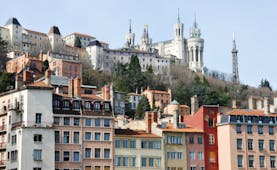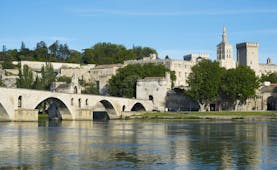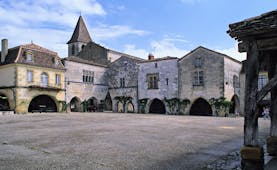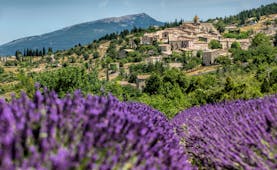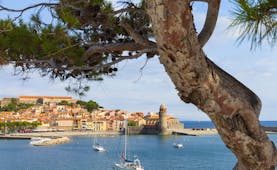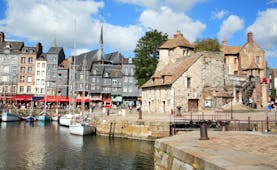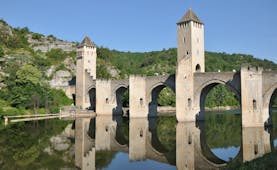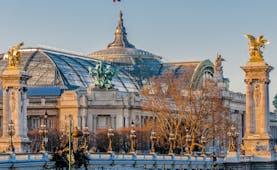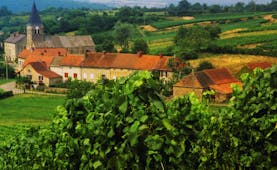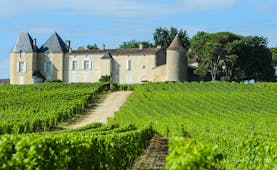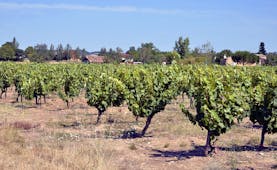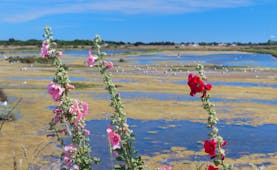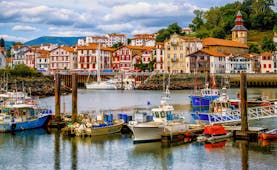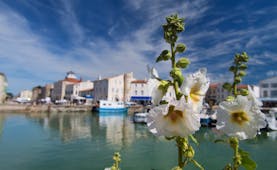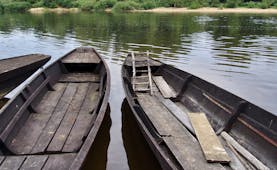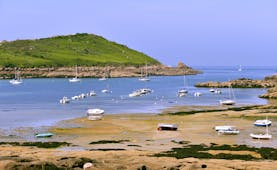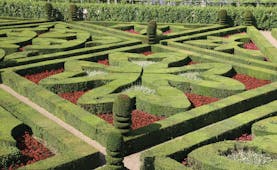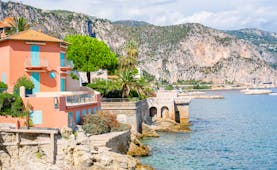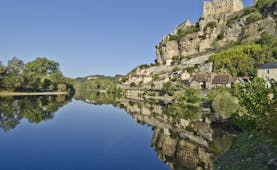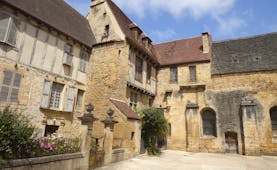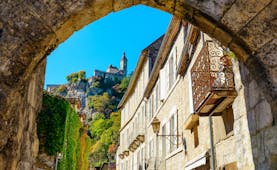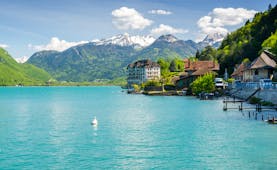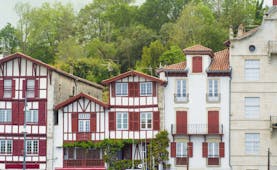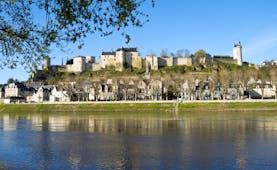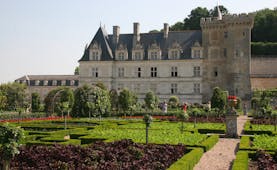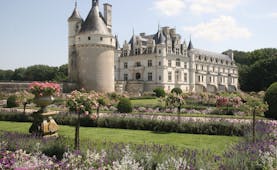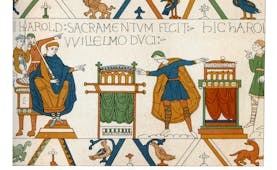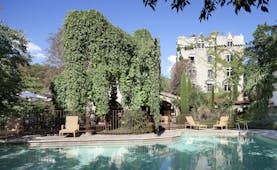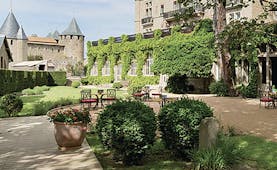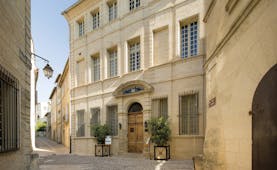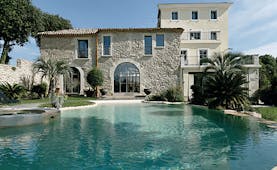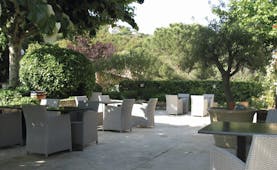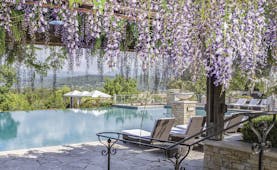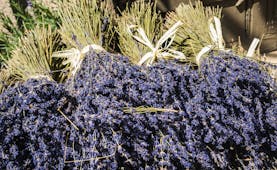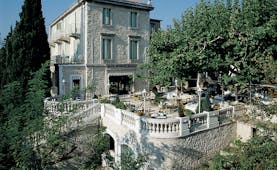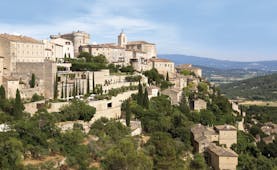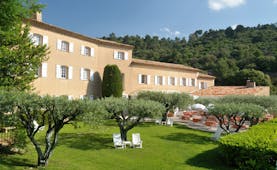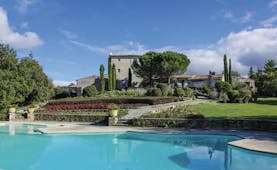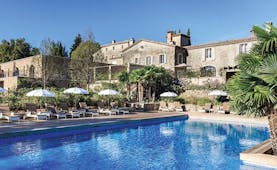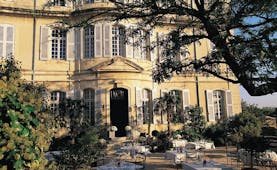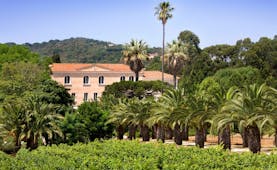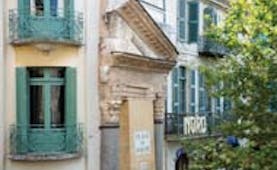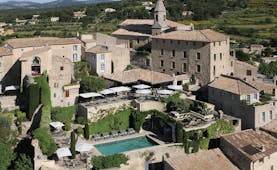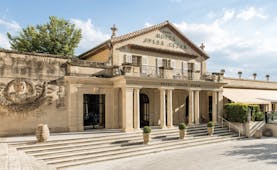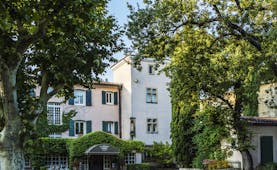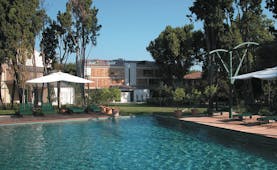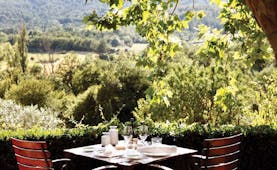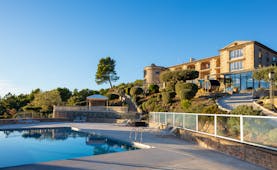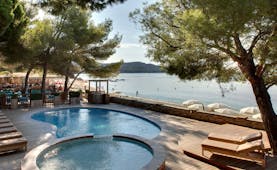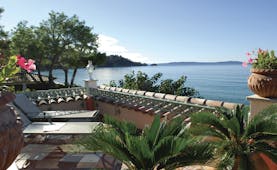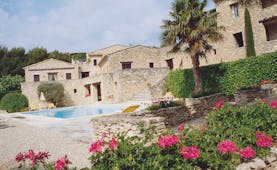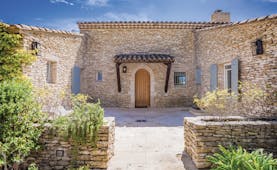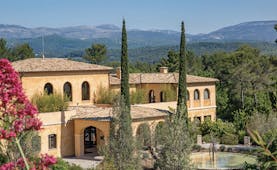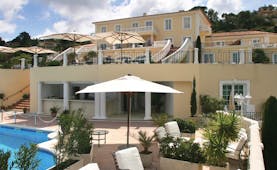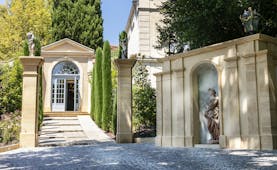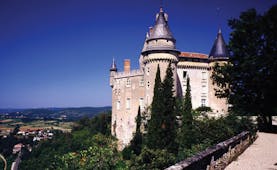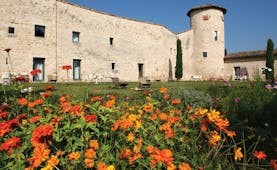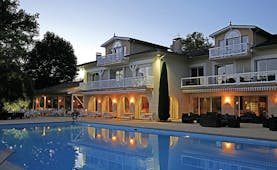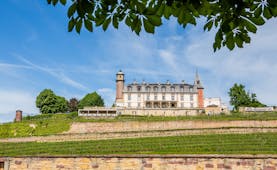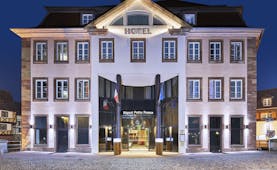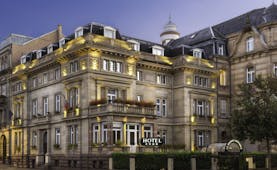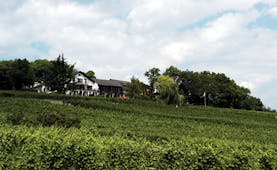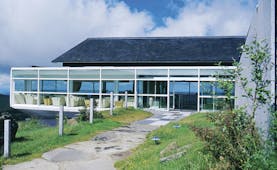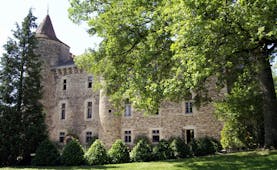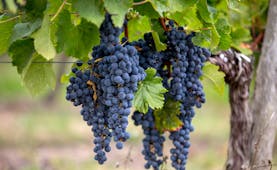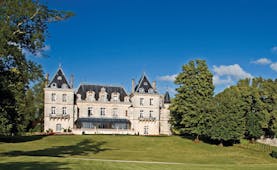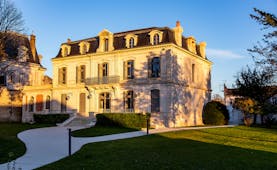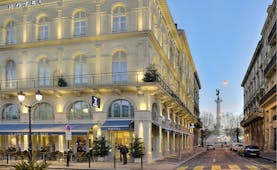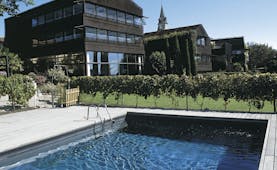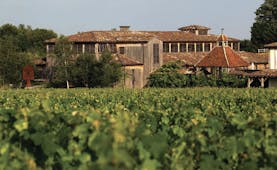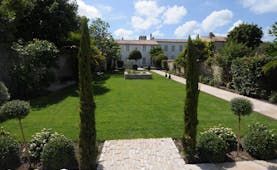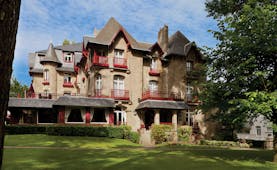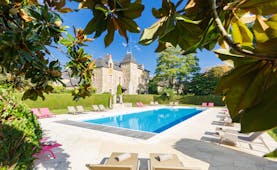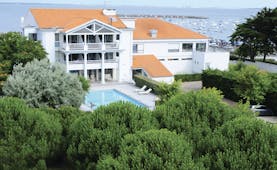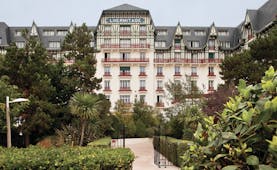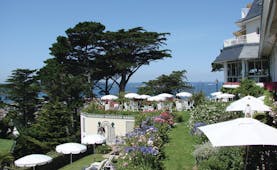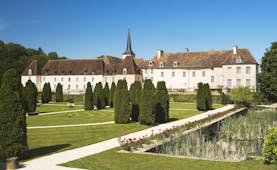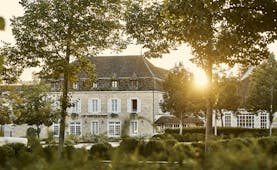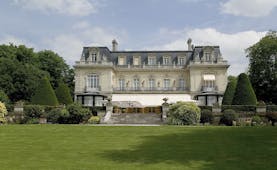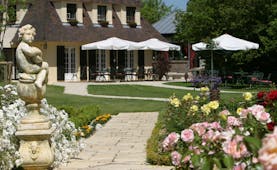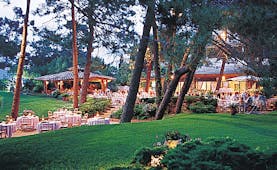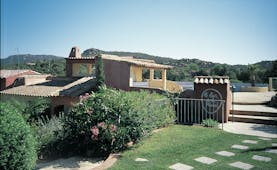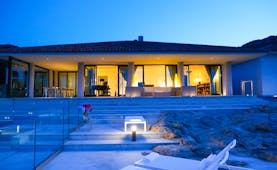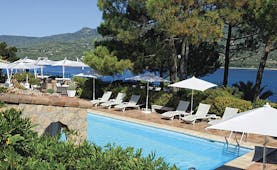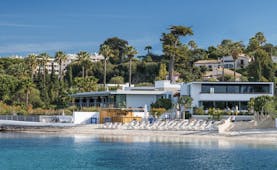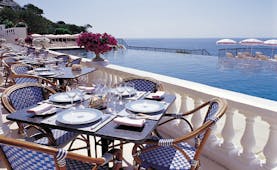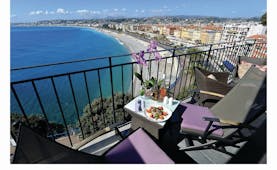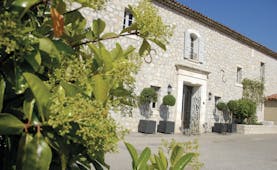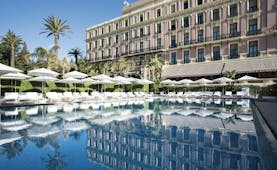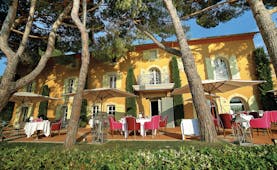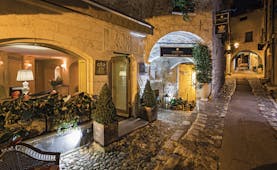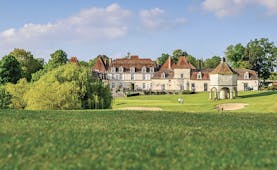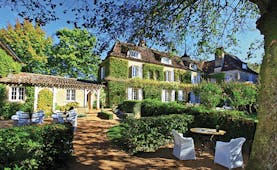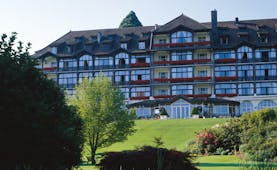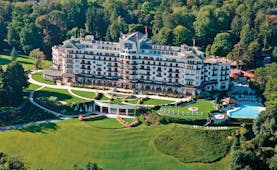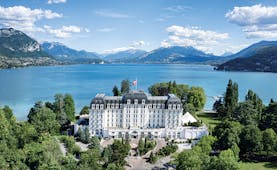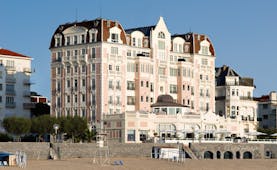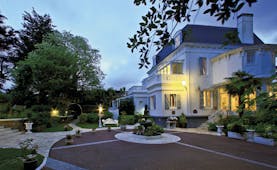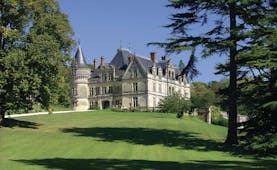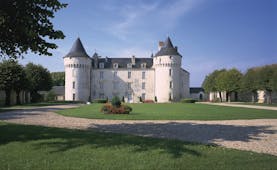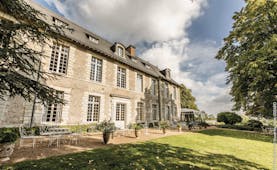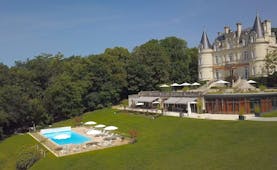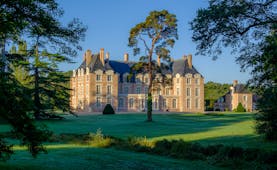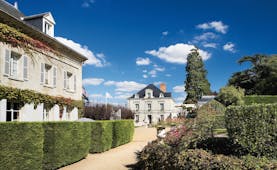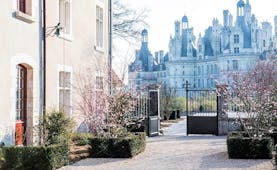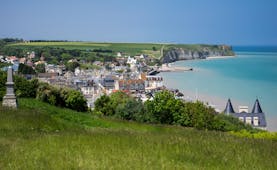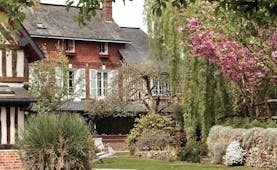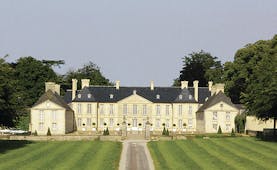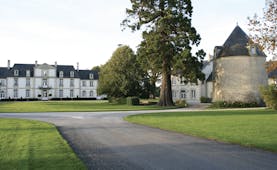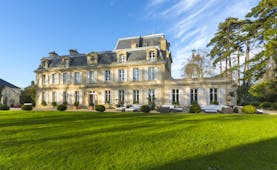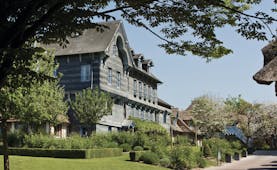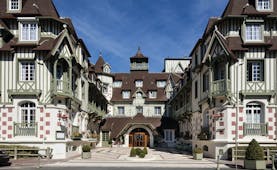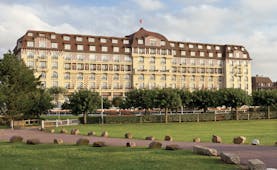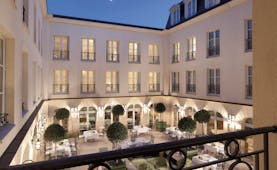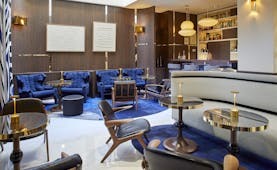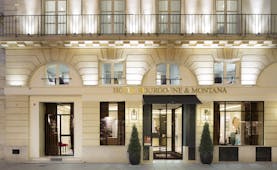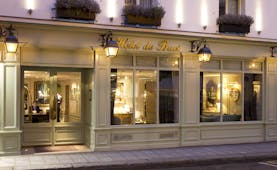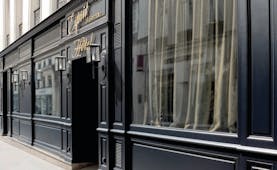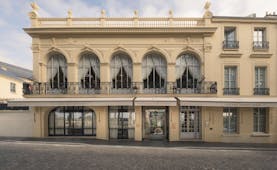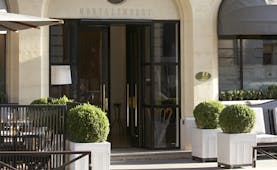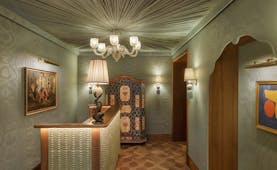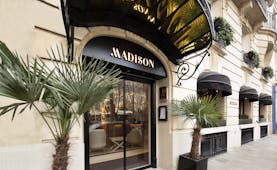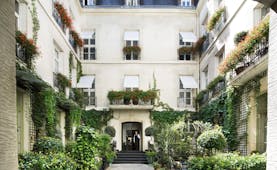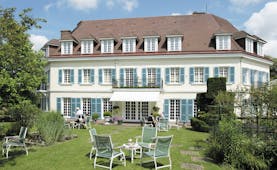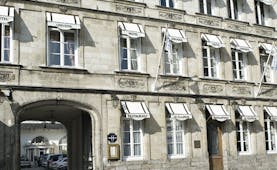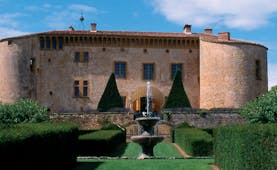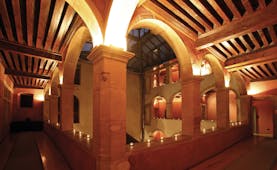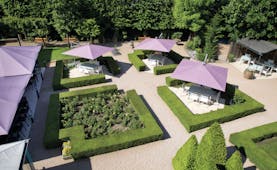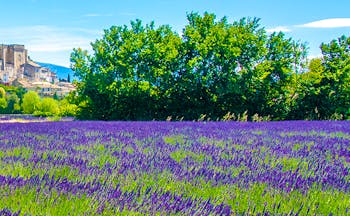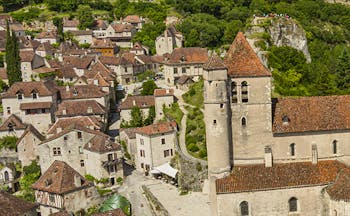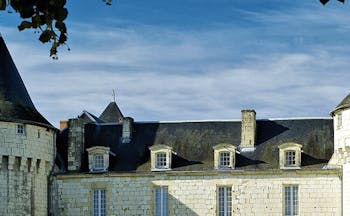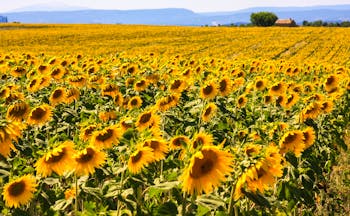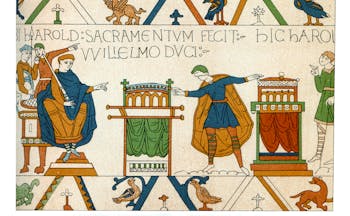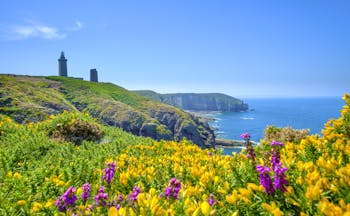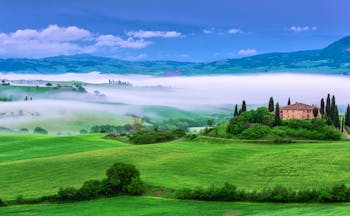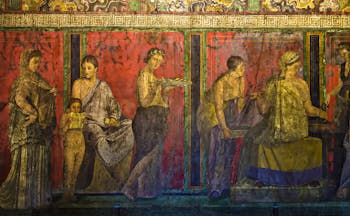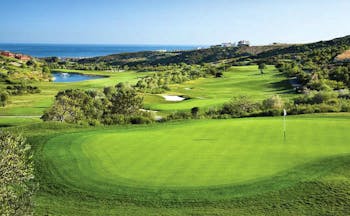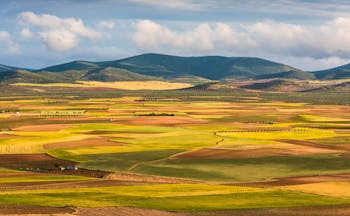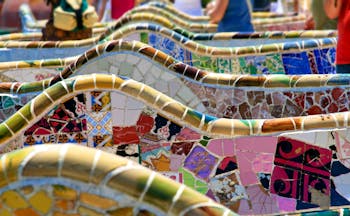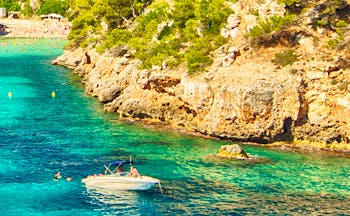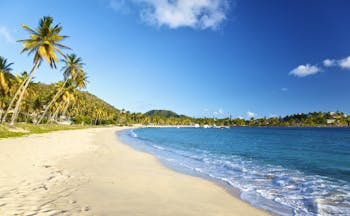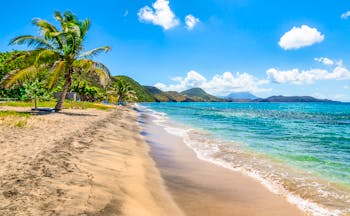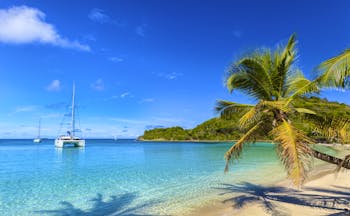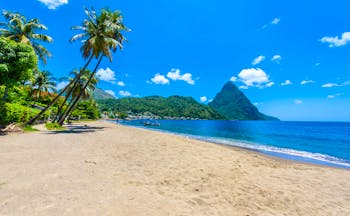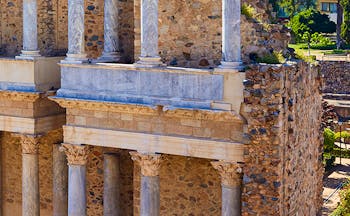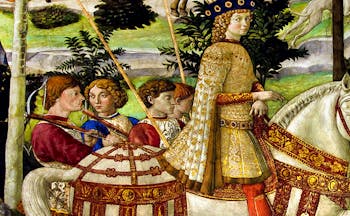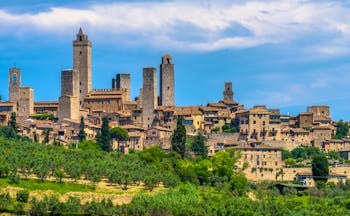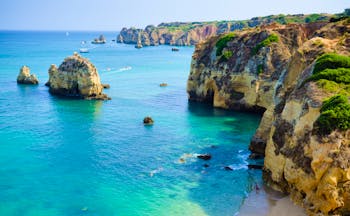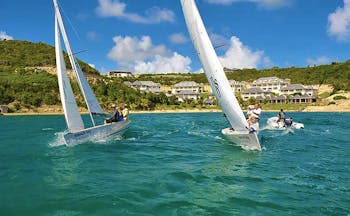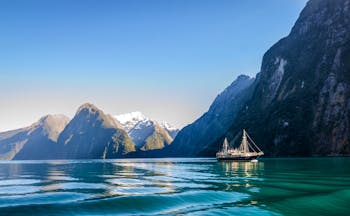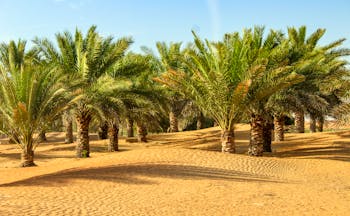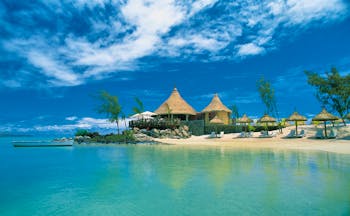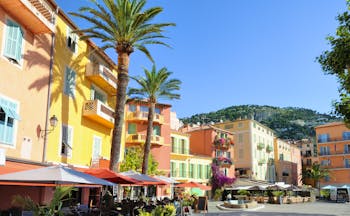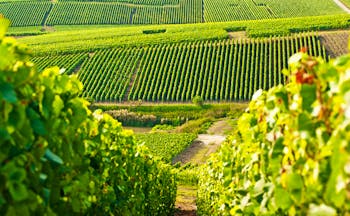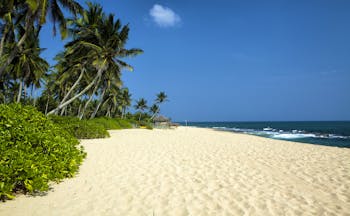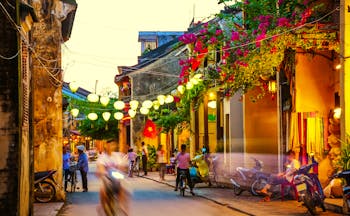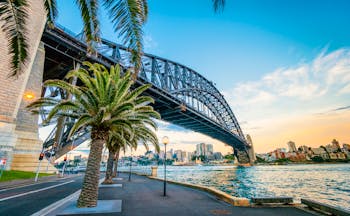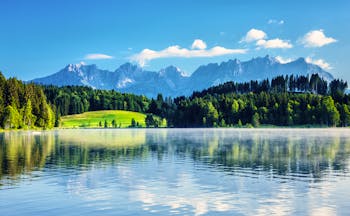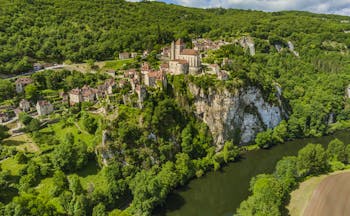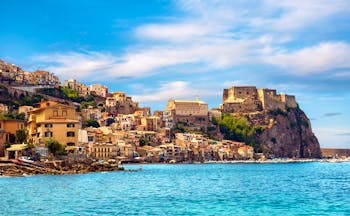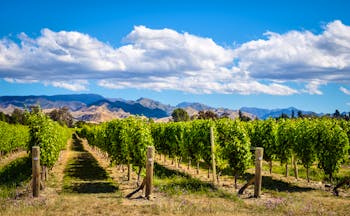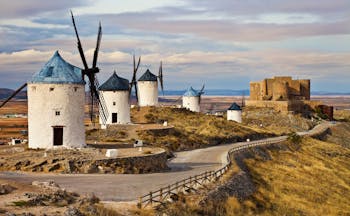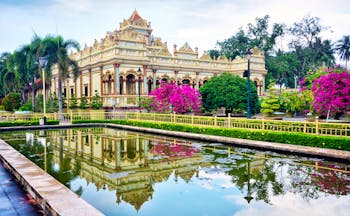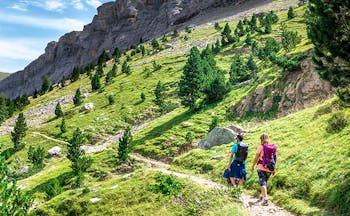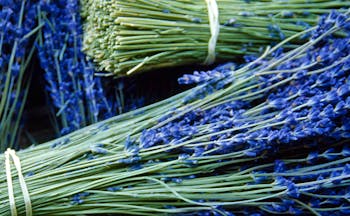Luxury fly-drive touring holiday to the southern regions of the Tarn, Languedoc & Provence
This 12-night fly-drive touring holiday is a leisurely exploration of the southern French lands of the Tarn, Languedoc and Provence. You stay for three nights in four different places, giving you chance to investigate each area but also time to explore and pursue your interests as you drive from place to place, stopping off along the way and following scenic country routes. Your touring holiday starts in Toulouse, where you collect your hire-car and then drive along the valley of the River Tarn to your first stop north of Albi and Gaillac. There is plenty of time to explore the gentle landscape here and find out about local artisan food producers. Sugared almonds, biscuits and chocolate are a speciality of the region. There is time, too, to visit the historic town of Albi. From the Tarn you drive south into the land of the Cathars and the region of Languedoc to the great, citadel-city of Carcassonne. Again, with three nights here there is time to explore the narrow streets, the castle and the ramparts of this mighty mediaeval fortress-town from your hotel built into the ramparts themselves, as well as to venture into the dramatic, craggy landscape to the south, where you can see and visit the remains of majestic Cathar castles. You then cross the regional natural park of the Haut-Languedoc, with the Minervois and then the Herault vineyards and home to startlingly attractive hill towns such as Minerve and Saint-Guilhem-le-Desert. Your destination after this scenic journey is Montpellier, capital of the Languedoc and a bright city, modern and historic at the same time. After your three nights in Montpellier you journey across the flat, marshlands of the Camargue into Provence and home to some of the best loved scenery, villages and landscapes of the south of France. In one day between Montpellier and your destination, Joucas, you pass through three natural regional parks: the Camargue, les Alpilles and the Luberon. Your stay in the Luberon opens up vistas of lavender and sunflowers, olives and vines, more hill-villages and ancient waters. All around are the vivid associations with Van Gogh and Cezanne. You return from Marseille to London. The driving times we mention are valid if you take the fastest, most direct route, but you should venture off and enjoy the journey.
Highlights
Tarn • Visit Albi and the Toulouse-Lautrec museum • Carcassonne • Visit the castles of the Cathars • Visit the Canal du Midi • Parc naturel regional du Haut Languedoc • Visit Saint-Guilhem-le-Desert • Visit the Herault vineyards • Montpellier • Visit the Mediterranean coast • Drive across the Camargue • Visit Arles • Visit les Alpilles • Visit Gordes and the Village des Bories • See the lavender fields at the Abbaye de Senanque • Stop off in Aix-en-Provence
Day by day
You arrive at Toulouse and collect your hire-car and then it is just an hour’s drive by motorway to your base in the Tarn at Cahuzac-sur-Vere. However, depending on the arrival time of your flight, we recommend that you take a slower route to your overnight stop, by leaving the motorway to join the route of the River Tarn at Mezens. Follow the road along the river through the picturesque, red-brick town of Rabastens, a traditional stopping point on the route to Santiago de Compostela and home to the UNESCO World Heritage Site of the Notre-dame du Bourg church. There are magnificent townhouses built by the merchants who would trade in wine and dye. Soon there is the start of the Gaillac vineyards and then you reach your destination. You stay at Cahuzac-sur-Vere for three nights.
You have two full days to explore this fascinating region, and a little off-the-beaten track of the normal tourist routes of France. The small commune of Cahuzac-sur-Vère is the quintessential rural French settlement, with its narrow winding streets and blond stone buildings, picturesque central square and war monument. The houses of the Cahuzacois cluster around the Catholic church of the same name as the commune, giving it a very mediaeval appearance. Stretching out on each side, however, is a landscape rich in exciting opportunities to explore. Montauban, less than an hour northwest of Cahuzac-sur-Vère is the second oldest of the bastides of southern France, founded in 1144AD. It was voted a French City of Art and History, with a city centre characterised by its towering castle, impressive bridge, and boulevards. Wine-tasting opportunities are available at the Domaine de Montels and the Mas des Anges, if you would like to sample the wine of the area. Alternatively, Montauban is known for its other culinary specialities, such as sugared almonds and biscuits with jam, not to mention the fabulous produce of its chocolatiers. Also nearby is Albi, a UNESCO World Heritage Site, and bursting with the remarkable history of France. The most immediate point of interest in this small town is its red-brick mediaeval cathedral, St. Cecilia’s. Witness how its imposing exterior blends into the delicate wood and stone decoration of its interior. Adorning the whole western wall are extensive murals depicting the Last Judgement. Just next door, the Bishop’s palace houses the Toulouse Lautrec museum, dedicated to the works of the post-impressionistic iconographer Henri de Toulouse-Lautrec. From outside the cathedral, you can make your way west to the square which overlooks the River Tarn or pass the museum to walk across the thousand-year-old Old Bridge. Albi retains the look and feel of its traditional way of life. Visit the hill-top town of Cordes-sur-Ciel and take the time to wander down the streets of one of the most spectacular villages.
You drive through the wine-town of Gaillac today, heading for Castres, on the banks of the River Agout. There are interesting part-timbered, overhanging houses here that used to belong to the tanners and dyers of the town. There is also the Goya museum, located in a former episcopal palace. Outside the palace are magnificent parterres designed by Le Notre. South of Castres you cross into the Parc naturel regional du Haut Languedoc and then enter Cathar country. North of Carcassonne it’s worth taking a detour to visit the chateaux at Lastours, where there are four Cathar castles. You stay in Carcassonne, within the town walls, for three nights.
You have a full day in Carcassonne. There is time to explore the city itself and perhaps to venture outside. The Gallo-Roman upper town of Carcassonne is now a UNESCO World Heritage Site and historically of great significance in France. Walk along the city walls, past the castle’s amphitheatre, the basilica, and its 53 watchtowers, before making your way into the 12th century Château Comtal to view its archaeological exhibits and tour its inner ramparts. The lower Carcassonne town subverts its title as a city, instead offering a peaceful, somewhat sleepy atmosphere, with a central square that holds a weekly market and several cafés. From Place Carnot, walk further out into the town centre to discover the quaint individual stores that sell unique gifts, or La Ferme, which sells fine food and wines. For a stunning experience of the region’s châteaux, drive south to the Cathar Castles that pepper the dramatic landscape and guard its deep valleys, particularly the Château de Peyrepertuse. The Canal du Midi is perfect for a long afternoon stroll or book a boat trip one afternoon to intensify the atmosphere of Carcassonne from the water. Beyond the walls of La Cité lie the wine regions of Minervois, to the north, and Corbières, to the south. If wine-tasting appeals, head into one of the many châteaux dotted around the countryside of these two regions. The Château Canet is the perfect spot to try some of the Muscat wines so typical of the Minervois region, as well as the olives from its three olive groves. Château Rives-Blanques in Cépie produces wines made available all over the world that you are encouraged by your warm hosts to taste on your visit. The less visited area of Saint Chinian, situated at the foothills of the Black Mountains and in the Parc Naturel Regional du Haut Languedoc, is worth a visit, known as it is for high quality produce; perhaps stop off at the Château de Combebelle.
Your route today should take you north-east first to the town of Minerve and the Minervois wine producing region, a patchwork landscape of small vineyards and olive trees dotted with pretty villages. This is at the southern end of the Parc naturel regional du Haut Languedoc which you then cross following a scenic route through wooded hills and valleys, with the road twisting and turning as it follows the course of the River Orb, in the direction of Clermont-l’Herault. Near Clermont-l'Herault, surrounded by rolling hills of vines and olives, is the strange-sounding place of Manufacture Royale, which was where royal sheets were made in the village of Villeneuvette in the 18th century. To the north is the ‘Grand Site’ of the Lac Salagou and a short distance beyond Clermont-l’Herault is the astonishing village of Saint-Guilhem-le-Desert, designated as one of the most beautiful villages in France. This village is at the heart of the Herault valley with its deep gorges, olive trees and vines. Continue to your overnight stop on the outskirts of Montpellier, where you stay for three nights.
You have two full days in Montpellier with time to visit both the city itself, the coast nearby and other sites in the area. Montpellier has mediaeval streets and wide boulevards, modern tram lines designed by Christian Lacroix, an Arc de Triomphe and a statue of Louis XIV on horseback, a Roman aqueduct and Place de la Comedie, beautiful private mansions and the Musee Fabre. Within reach in under an hour from Montpellier is the city of Nimes where you can find stunningly preserved Roman architecture, including the famous aqueduct, the Arena of Nimes, a double tiered amphitheatre still used as a venue today and the Maison Carrée, built in white limestone and estimated to be around 2000 years old. A little further north is the Roman aqueduct, the Pont du Gard.
Today is an amazing array of scenery and landscapes as you drive from Languedoc into Provence, first through the eerie landscape of the Camargue, stopping perhaps to visit Aigues-Mortes and then Arles, before finding yourself in the dramatic scenery of the Alpilles, south of Avignon. This is the land of the authors Alphonse Daudet and Frederic Mistral and of Van Gogh who lived in St Remy de Provence. The landscape has the limestone peaks, but pine and oak forests, fields of olive trees and avenues of cypress. Dotted around are farmhouse of ancient drystone. Les Baux de Provence, a mountain-top village with 22 historic monuments and with outstanding views over the countryside below and St Remy de Provence are both worth visiting. Just a little further on you reach the beautiful countryside of the Luberon and Joucas. You spend three nights here.
You have two days to explore this beautiful area of Provence. The Luberon is a gentle landscape of vineyards, orchards, rolling hills and home to the famous lavender and sunflowers, associated greatly with Provence. There are plenty of lavender-related visits including to the lavender museum at Coustellet, with its still and lavender cutting displays. Near Gordes is Senanque Abbey, famous for its picturesque lavender beds. There are abundant picturesque hill-top villages, for example Gordes, well-worth exploring as is the nearby Village des Bories. Explore along the Sorgue River and the surrounding countryside by bike or on foot. Local markets take place in the villages every day: Lourmarin and Bonnieux on a Friday, Gordes on a Tuesday and Menerbes on a Thursday, for example. Fontaine-de-Vaucluse has a famous subterranean spring, and its waters have inspired poets for hundreds of years. Petrarch lived here in the 14th century and his now is now a museum. There is also a museum of the Resistance, a museum of Provencal ‘santons’, workshops of hand-blown crystal and a mill making paper by hand using 15th century techniques.
Today is the last day of the tour and you need to head to Marseille for your flight to London. However, depending on the time, you may want to visit the delightful city of Aix-en-Provence, overlooked by the Montagne Saint-Victoire, recognisable from the works of Cezanne. Recognised as a cosmopolitan hub of the south of France, the streets of Aix-en-Provence are lined with boutique shops specialising in art, jewellery, and fashion. Fine dining is also an attractive in Aix with exclusive cafés and Michelin-starred restaurants, many on the Cours Mirabeau. Yet, it is the historical heritage of the town that really makes its chic cosmopolitan side come to life. A haven for Paul Cézanne, his ‘atelier’ is available for viewing, recreating the artistic and productive space in which he used to work. A short walk from the ‘atelier’ is Les Lauves, the spot from which Cézanne developed his love affair with Montagne Sainte-Victoire. On Saturday mornings there are busy farmers’ markets and the Musee du Calisson, where you can learn about the famous sweets. The main art gallery is the Musee Granet in the Mazarin district, full of elegant 17th and 18th century townhouses. Return your hire-car at Marseille at the end of this touring holiday.
We had a lovely touring holiday in France. We loved Languedoc Roussillon and the tour you laid out. Thank you.Mrs O, September 2016
Holiday price guide Prices from £3,290 per person based on two people sharing a double or twin room.
Holiday Code FRFD10
Call us on 01392 441245
Luxury fly-drive touring holiday to the southern regions of the Tarn, Languedoc & Provence
You arrive at Toulouse and collect your hire-car and then it is just an hour’s drive by motorway to your base in the Tarn at Cahuzac-sur-Vere. However, depending on the arrival time of your flight, we recommend that you take a slower route to your overnight stop, by leaving the motorway to join the route of the River Tarn at Mezens. Follow the road along the river through the picturesque, red-brick town of Rabastens, a traditional stopping point on the route to Santiago de Compostela and home to the UNESCO World Heritage Site of the Notre-dame du Bourg church. There are magnificent townhouses built by the merchants who would trade in wine and dye. Soon there is the start of the Gaillac vineyards and then you reach your destination. You stay at Cahuzac-sur-Vere for three nights.
You have two full days to explore this fascinating region, and a little off-the-beaten track of the normal tourist routes of France. The small commune of Cahuzac-sur-Vère is the quintessential rural French settlement, with its narrow winding streets and blond stone buildings, picturesque central square and war monument. The houses of the Cahuzacois cluster around the Catholic church of the same name as the commune, giving it a very mediaeval appearance. Stretching out on each side, however, is a landscape rich in exciting opportunities to explore. Montauban, less than an hour northwest of Cahuzac-sur-Vère is the second oldest of the bastides of southern France, founded in 1144AD. It was voted a French City of Art and History, with a city centre characterised by its towering castle, impressive bridge, and boulevards. Wine-tasting opportunities are available at the Domaine de Montels and the Mas des Anges, if you would like to sample the wine of the area. Alternatively, Montauban is known for its other culinary specialities, such as sugared almonds and biscuits with jam, not to mention the fabulous produce of its chocolatiers. Also nearby is Albi, a UNESCO World Heritage Site, and bursting with the remarkable history of France. The most immediate point of interest in this small town is its red-brick mediaeval cathedral, St. Cecilia’s. Witness how its imposing exterior blends into the delicate wood and stone decoration of its interior. Adorning the whole western wall are extensive murals depicting the Last Judgement. Just next door, the Bishop’s palace houses the Toulouse Lautrec museum, dedicated to the works of the post-impressionistic iconographer Henri de Toulouse-Lautrec. From outside the cathedral, you can make your way west to the square which overlooks the River Tarn or pass the museum to walk across the thousand-year-old Old Bridge. Albi retains the look and feel of its traditional way of life. Visit the hill-top town of Cordes-sur-Ciel and take the time to wander down the streets of one of the most spectacular villages.
You drive through the wine-town of Gaillac today, heading for Castres, on the banks of the River Agout. There are interesting part-timbered, overhanging houses here that used to belong to the tanners and dyers of the town. There is also the Goya museum, located in a former episcopal palace. Outside the palace are magnificent parterres designed by Le Notre. South of Castres you cross into the Parc naturel regional du Haut Languedoc and then enter Cathar country. North of Carcassonne it’s worth taking a detour to visit the chateaux at Lastours, where there are four Cathar castles. You stay in Carcassonne, within the town walls, for three nights.
You have a full day in Carcassonne. There is time to explore the city itself and perhaps to venture outside. The Gallo-Roman upper town of Carcassonne is now a UNESCO World Heritage Site and historically of great significance in France. Walk along the city walls, past the castle’s amphitheatre, the basilica, and its 53 watchtowers, before making your way into the 12th century Château Comtal to view its archaeological exhibits and tour its inner ramparts. The lower Carcassonne town subverts its title as a city, instead offering a peaceful, somewhat sleepy atmosphere, with a central square that holds a weekly market and several cafés. From Place Carnot, walk further out into the town centre to discover the quaint individual stores that sell unique gifts, or La Ferme, which sells fine food and wines. For a stunning experience of the region’s châteaux, drive south to the Cathar Castles that pepper the dramatic landscape and guard its deep valleys, particularly the Château de Peyrepertuse. The Canal du Midi is perfect for a long afternoon stroll or book a boat trip one afternoon to intensify the atmosphere of Carcassonne from the water. Beyond the walls of La Cité lie the wine regions of Minervois, to the north, and Corbières, to the south. If wine-tasting appeals, head into one of the many châteaux dotted around the countryside of these two regions. The Château Canet is the perfect spot to try some of the Muscat wines so typical of the Minervois region, as well as the olives from its three olive groves. Château Rives-Blanques in Cépie produces wines made available all over the world that you are encouraged by your warm hosts to taste on your visit. The less visited area of Saint Chinian, situated at the foothills of the Black Mountains and in the Parc Naturel Regional du Haut Languedoc, is worth a visit, known as it is for high quality produce; perhaps stop off at the Château de Combebelle.
Your route today should take you north-east first to the town of Minerve and the Minervois wine producing region, a patchwork landscape of small vineyards and olive trees dotted with pretty villages. This is at the southern end of the Parc naturel regional du Haut Languedoc which you then cross following a scenic route through wooded hills and valleys, with the road twisting and turning as it follows the course of the River Orb, in the direction of Clermont-l’Herault. Near Clermont-l'Herault, surrounded by rolling hills of vines and olives, is the strange-sounding place of Manufacture Royale, which was where royal sheets were made in the village of Villeneuvette in the 18th century. To the north is the ‘Grand Site’ of the Lac Salagou and a short distance beyond Clermont-l’Herault is the astonishing village of Saint-Guilhem-le-Desert, designated as one of the most beautiful villages in France. This village is at the heart of the Herault valley with its deep gorges, olive trees and vines. Continue to your overnight stop on the outskirts of Montpellier, where you stay for three nights.
You have two full days in Montpellier with time to visit both the city itself, the coast nearby and other sites in the area. Montpellier has mediaeval streets and wide boulevards, modern tram lines designed by Christian Lacroix, an Arc de Triomphe and a statue of Louis XIV on horseback, a Roman aqueduct and Place de la Comedie, beautiful private mansions and the Musee Fabre. Within reach in under an hour from Montpellier is the city of Nimes where you can find stunningly preserved Roman architecture, including the famous aqueduct, the Arena of Nimes, a double tiered amphitheatre still used as a venue today and the Maison Carrée, built in white limestone and estimated to be around 2000 years old. A little further north is the Roman aqueduct, the Pont du Gard.
Today is an amazing array of scenery and landscapes as you drive from Languedoc into Provence, first through the eerie landscape of the Camargue, stopping perhaps to visit Aigues-Mortes and then Arles, before finding yourself in the dramatic scenery of the Alpilles, south of Avignon. This is the land of the authors Alphonse Daudet and Frederic Mistral and of Van Gogh who lived in St Remy de Provence. The landscape has the limestone peaks, but pine and oak forests, fields of olive trees and avenues of cypress. Dotted around are farmhouse of ancient drystone. Les Baux de Provence, a mountain-top village with 22 historic monuments and with outstanding views over the countryside below and St Remy de Provence are both worth visiting. Just a little further on you reach the beautiful countryside of the Luberon and Joucas. You spend three nights here.
You have two days to explore this beautiful area of Provence. The Luberon is a gentle landscape of vineyards, orchards, rolling hills and home to the famous lavender and sunflowers, associated greatly with Provence. There are plenty of lavender-related visits including to the lavender museum at Coustellet, with its still and lavender cutting displays. Near Gordes is Senanque Abbey, famous for its picturesque lavender beds. There are abundant picturesque hill-top villages, for example Gordes, well-worth exploring as is the nearby Village des Bories. Explore along the Sorgue River and the surrounding countryside by bike or on foot. Local markets take place in the villages every day: Lourmarin and Bonnieux on a Friday, Gordes on a Tuesday and Menerbes on a Thursday, for example. Fontaine-de-Vaucluse has a famous subterranean spring, and its waters have inspired poets for hundreds of years. Petrarch lived here in the 14th century and his now is now a museum. There is also a museum of the Resistance, a museum of Provencal ‘santons’, workshops of hand-blown crystal and a mill making paper by hand using 15th century techniques.
Today is the last day of the tour and you need to head to Marseille for your flight to London. However, depending on the time, you may want to visit the delightful city of Aix-en-Provence, overlooked by the Montagne Saint-Victoire, recognisable from the works of Cezanne. Recognised as a cosmopolitan hub of the south of France, the streets of Aix-en-Provence are lined with boutique shops specialising in art, jewellery, and fashion. Fine dining is also an attractive in Aix with exclusive cafés and Michelin-starred restaurants, many on the Cours Mirabeau. Yet, it is the historical heritage of the town that really makes its chic cosmopolitan side come to life. A haven for Paul Cézanne, his ‘atelier’ is available for viewing, recreating the artistic and productive space in which he used to work. A short walk from the ‘atelier’ is Les Lauves, the spot from which Cézanne developed his love affair with Montagne Sainte-Victoire. On Saturday mornings there are busy farmers’ markets and the Musee du Calisson, where you can learn about the famous sweets. The main art gallery is the Musee Granet in the Mazarin district, full of elegant 17th and 18th century townhouses. Return your hire-car at Marseille at the end of this touring holiday.
We had a lovely touring holiday in France. We loved Languedoc Roussillon and the tour you laid out. Thank you.Mrs O, September 2016
Holiday price guide Prices from £3,290 per person based on two people sharing a double or twin room.
Holiday Code FRFD10
Our prices include
● Scheduled flight with British Airways from London to Toulouse and Marseille to London
● Hire of a group B car for the duration of the holiday
● 3 nights’ bed and breakfast in a Comfort double room at the Château des Salettes in Cahuzac-sur-Vère, near Gaillac
● 3 nights' bed and breakfast in a Classic double room at the Hotel de la Cite in Carcassonne
● 3 nights’ bed and breakfast in a Deluxe double room at the Domaine de Verchant near Montpellier
● 3 nights’ bed and breakfast in a Garrigue room at Le Phebus, at Joucas
● Concierge service and Expressions Holidays regional helpful hints
Our prices do not include
● Early check-in or late check-out at any hotels (although we can arrange this on request at additional cost)
● Any other services not mentioned above, such as transfers and meals except breakfast at hotels
● Personal holiday insurance. This is essential and cover should be in place from when you book the holiday.
● Local tourist tax, usually between Euros 1 and 3 per person per night, and payable locally to the hotel
Additional information
Driving times for this touring holiday
Toulouse to Cahuzac-sur-Vère 1 hour
Cahuzac-sur-Vère to Carcassonne 1 hours 35 minutes
Carcassonne to Montpellier 1 hour 45 minutes
Montpellier to Joucas 2 hours 15 minutes
Joucas to Marseille 1 hour 45 minutes
Call us on 01392 441245
Luxury fly-drive touring holiday to the southern regions of the Tarn, Languedoc & Provence
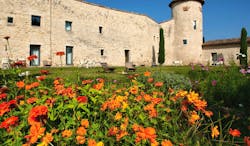
Château des Salettes in Tarn is an exclusive, 4-star château-hotel in a beautiful secluded location. The excellent spa facilities and refined cuisine afford guests a luxuriously indulgent countryside retreat.
Comfort double room
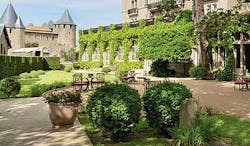
Hotel de la Cité is a luxury 5-star hotel in an excellent location in the heart of the mediaeval city. Delicious gourmet cuisine and pampering spa facilities afford guests a relaxing and indulgent experience.
Classic double room
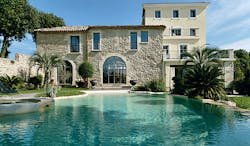
Le Domaine de Verchant is an exclusive 5-star hotel in a beautifully secluded location. Gourmet cuisine, excellent spa facilities and beautiful grounds and vineyards afford guests a truly relaxing and idyllic retreat.
Deluxe double room
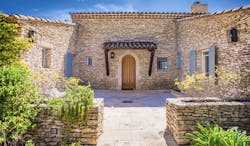
Le Phebus is a boutique 5-star hotel in a beautiful countryside location. Michelin-starred cuisine and excellent spa facilities, alongside the stunning natural vistas surrounding the property make this a secluded haven of relaxation.
Garrigue room
We had a lovely touring holiday in France. We loved Languedoc Roussillon and the tour you laid out. Thank you.Mrs O, September 2016
Holiday price guide Prices from £3,290 per person based on two people sharing a double or twin room.
Holiday Code FRFD10
Call us on 01392 441245
Luxury fly-drive touring holiday to the southern regions of the Tarn, Languedoc & Provence
About Provence
An Expressions tailor-made holiday to Provence, the land which is the ancient province of the Romans, offers a rich tapestry of landscapes, culture and traditions. From the sunflower fields of Van Gogh`s Arles, to the sandy marshes of the Camargue, from the Cezanne like landscapes of Aix inland to the olive groves and lavender beds that surround the perched hill top villages, and finally to the dramatic coastline of the azure Mediterranean where the sandy beaches, craggy corniches and fishing villages have been transformed into a sophisticated holiday playground you experience a multitude of contrasting and complementary senses and images. The perfumes of lavender, thyme, rosemary, citrus, pine and olive mingle in the air and the light is bright and clear. Add to all these sensations a wonderful climate, good food and local wine and unlimited sporting and sightseeing activities and you can understand why Provence is not just an ideal holiday destination but a romantic way of life. Provence still has miles of open road across country, tiny, sleepy villages, dramatic hills and craggy peaks, beautiful, sense enriching panoramas and aromas all waiting for you to explore and enjoy.
Highlights of Provence
Cultural highlights include santons, Souleiado Provençal fabrics, herbs and lavender, wine and olive oil, melons and pastis, boules and berets.
Provence Climate
Average air temperatures in Centigrade: January: 12.2, February: 11.9, March: 14.2, April: 18.5, May: 20.8, June: 26.6, July: 28.1, August: 28.4, September: 25.2, October: 22.1, November: 16.8, December: 14.1. Source: Direction de la Meteorologique de France.
Call us on 01392 441245
Luxury fly-drive touring holiday to the southern regions of the Tarn, Languedoc & Provence
About Tarn and Lot
An Expressions tailor-made holiday to Tarn and Lot is a chance to explore an area of southern France, including Albi, the birthplace of Toulouse Lautrec which is a cathedral city on the banks of the River Tarn with a strong artistic and architectural tradition. The countryside in Tarn and Lot is green and rolling, with vineyards, river valleys and hill top villages and fortresses, such as Cordes. The town of Cahors is at the heart of the beautifully dramatic Lot valley surrounded by rolling wooded hills and vineyards. The valley itself is dotted with mediaeval towns. The area is noted for its wine and the vineyards of course can be visited. An excellent idea is to combine a holiday in Tarn and Lot with a stay in Auvergne to the north-east, enjoying a gastronomic tour around the two regions. Alternatively, the region can be included in a self-drive touring holiday through the southwest of France, or around the Dordogne, Basque Country and Massif Central. The area can also be reached by train, allowing you to enjoy a rail holiday following in the footsteps of Toulouse Lautrec.
Highlights of Tarn and Lot
Cultural highlights include music festival in Toulouse, Limoux wine, the ruined fortresses of the Cathars, the craggy valley of Aveyron, the mediaeval fortified village of Cordes, Gaillac wine, the Charcuterie of Lacaune, and the Goya museum at Castres.
Tarn and Lot Climate
Average air temperatures in Centigrade: Jan 12.4, Feb 11.5, Mar 12.5, Apr 17.6, May 20.1, Jun 26.5, Jul 28.4, Aug 28.1, Sep 26.1, Oct 21.1, Nov 15.8, Dec 13.5. Source: Direction de la Meteorologique de France.

